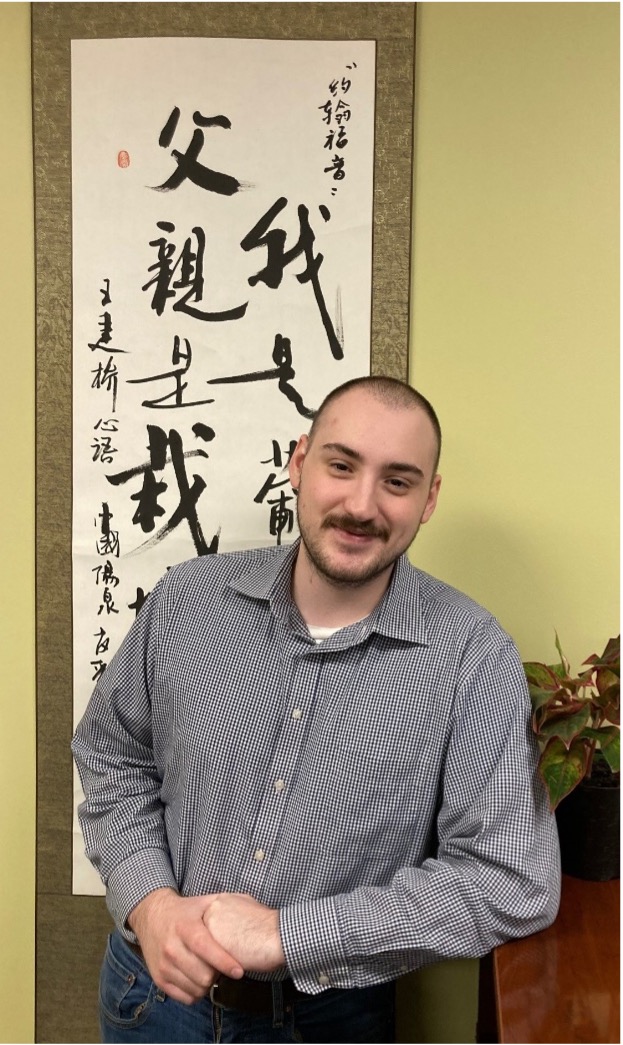One of the signature programs offered by Lombard Mennonite Peace Center is Clergy Clinic in Family Emotional Process. This has been offered for several decades with nearly two thousand clergy participants between Clergy Clinic and Advanced Clergy Clinic. In both programs, the focus is on Bowen Family Systems Theory which is a theory about human behavior and functioning. The concepts of Bowen Family Systems Theory are differentiation of self, emotional triangles, the family emotional system, family projection process, emotional cutoff, multigenerational transmission process, sibling position, and societal regression.
In our previous blog posts, we have used the metaphor of a toolkit and have shared about the “tools” we use through our programming. As with any tool, there comes a time when it needs to be sharpened or cleaned. Such is the case with our program Clergy Clinic in Family Emotional Process (the first year offering). In sharpening this program, we have changed the name of the first-year Clergy Clinic to Leadership Development Through Family Systems. The name change is to encourage anyone in leadership to participate in the program, not just clergy. The content of this program is accessible to anyone in a leadership role.
All leaders today face many challenges. In this time of increased anxiety and stress, our goal at Lombard Mennonite Peace Center is to help leaders focus on their own integrity, functioning, and the nature of their presence rather than seek quick-fix solutions or trendy techniques. In the book The Leader’s Journey (Herrington, Taylor, & Creech) the authors share that “Effective leaders will focus on their own lives, their own thinking, their own roles and responsibilities, their own part to play, and the log in their own eye rather than on the failures of others. They will learn to manage their own reactivity to the anxiety of society and to the anxiety of the people they lead…Leadership requires a different focus, away from society’s symptoms to our own convictions and beliefs. Leaders need the capacity to separate themselves from the surrounding emotional process, the discipline to be clear about their own principles and vision, the willingness to take risks, the persistence to face inertial resistance, and the self-regulation to stand in the face of reactive sabotage.”
An integral part of this program is an effort to understand multi-generational emotional processes in one’s family of origin and how those processes have shaped one’s emotional being. Participants begin to recognize how that emotional field might be affecting their functioning in their current roles including leadership in their organization. Bowen Family Systems Theory proposes that the more one can make differentiating efforts in their own family of origin, there is immediate carry-over in their leadership role.
What participants discover is that focusing on differentiation of self requires commitment to the lifetime project of being transformed by one’s life experiences and learnings. They recognize that it is a primary tool to depend on in their leadership roles. This understanding leads participants to continue after their first year of study and sign up for Advanced Clergy Clinic in Family Emotional Process.
We invite anyone who is in a leadership role to sign up for Leadership Development Through Family Systems. It is an opportunity to grow your emotional maturity and functioning, to work at defining self, and to regulate your reactivity in highly anxious and polarizing times.
— Tammy Martens
Promoting Peacemaking – wherever and whenever we canThe Lombard Mennonite Peace Center focuses on training people across the country in biblical education regarding the principles of peace; conflict resolution training; and community building techniques. We also welcome opportunities to do this for a range of areas and stages in life. Many people who take our workshops are clergy or lay people, but we also have participants from the mediation, counseling, and legal professions and the not-for-profit sector.
For the past two months, we have been happy to host an intern from the DePaul University program in Peace, Justice and Conflict Studies, John Lindley. Under the instruction of our Executive Director John has been preparing scholarly materials for presentations. He’s been able to sample two of our biggest workshops, the Mediation Skills Training Institute and Advanced Clergy Clinic, as well as our new one-day program, Restorative Conversations. Through the grace of a mediation client, he was able to see peace circles in action. He’s also gained a sense of the history of our 40-year-old organization by working in our archives. John is graduating this spring, and will be seeking some travel adventure before applying to graduate schools for a counseling degree. He wants to work with young people at the middle or high school level. Please join us in wishing this compassionate, richly experienced young man well on his life journey. We have been happy to mentor him in the art of peacebuilding.

Here is John Lindley, the LMPC intern from DePaul University program in Peace, Justice and Conflict Studies. He’s standing by a Chinese scroll that was made for our Executive Director, Jay Wittmeyer, when he was working in China for the Brethren. It reads, “The Lord is My Shepherd”, from John 15.
The backstory for the scroll is that in 1910, the Brethren started building hospitals in China that introduced Western medicine and concepts of caring for all. The hospitals and their principles were welcomed, marked with centenary celebrations in 2010. The hospitals were another form of peacemaking.
— Dorren Gertsen-Briand
